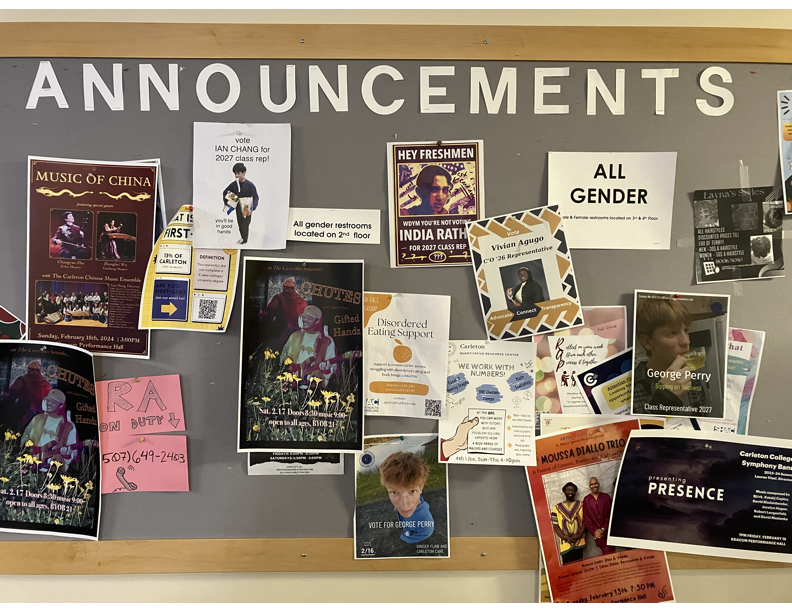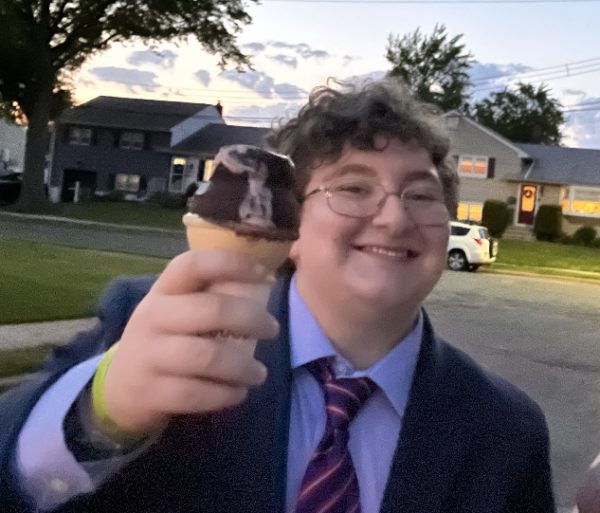When Ailya Vajid, Associate Chaplain for Muslim and Interfaith Life, started her undergraduate studies at Swarthmore College, she was an English major with a minor in Spanish. Vajid was sure she was going to become a fiction writer. “That did not live out past my first year of college,” she said.
“I found myself taking all religion classes and Arabic, and I realized that this was something that I cared deeply about,” Vajid said. “I really loved learning about what motivates people, what gives them purpose and drive and meaning in life.” While in college, chaplaincy and religious life on campus worked much differently than it does at Carleton, so there was no equivalent of her role, but Vajid recalled a variety of faculty that helped her on her spiritual and academic journey.
“My Arabic professor played a chaplain role for me, she taught me how to see God in the world around me and in nature and to reflect more deeply and engage in my faith,” she said. “They played a significant role in my spiritual journey and that was a big part of why I wanted to come back and do this type of work.”
During summers in college, Vajid worked at a Muslim summer camp with female high-schoolers . She saw that her campers had all sorts of problems and needed guidance, but being a college student, she didn’t have enough experience to help them. “It made me realize how much faith-based or culturally competent people were needed to support others, we needed people who were aware of both the Muslim tradition and of supporting other folks. It was the impetus of me coming into this work,” she said.
After graduating from Swarthmore, there was a lot of pressure for Vajid to go into academia. She graduated from Harvard Divinity School with a Masters of Theological Studies and went to work at a non-profit as a researcher. She spent some time at an organization called Karamah, a group of Muslim women lawyers who advocate for civil rights, women’s rights and human rights for people around the world. “I was in the research department, but within that I did a lot of community work and community building to raise awareness of the organization, and I found that was what I really enjoyed,” she said. “I didn’t want to sit behind a desk and do research, I wanted that one-on-one engagement with people.” From this job, she realized that “a PhD wasn’t for me, and that I really wanted to go into chaplaincy.”
Vajid then went back to work at Swarthmore in her first chaplain-like position, although the college didn’t have a position for her. “When I was at Swarthmore I was doing a study on the top ten liberal arts colleges and how religious life works at those schools because we wanted a different model, because at the time all of the chaplains were funded by outside organizations, and the Muslims didn’t have the outside resources for that,” she said.
When life brought her to Minnesota, Vajid worked in a consulting role for Carleton. She has since worked for Macalester, Gustavus Adolphus and the University of Virginia. From all of her different roles, Vajid has learned important things about chaplaincy. “Some of the most important things I have learned in all of my different roles is to just be present for what is needed… to not come in with my own assumptions and to be really open to listening to what people are saying and to make space for that…to be as open as possible and to see people’s needs and desires,” she said.
To Vajid, what drives her role as chaplain and what determines everything she does is her students. “The students are the life of the work for me and why I do what I do, part of how I came into this work is through people who filled this role for me in my own life,” Vajid said. She also recognizes that the unique environment of Carleton makes her role a little different every year. “At a small liberal arts college, one or two students can make a huge difference. Every year can look different and because we are so small, one person can make a deep impact and bring new ideas and new ways of leadership, and that makes the work really meaningful and exciting,” she said.
“My role is to journey with students, to walk alongside them as they navigate questions of faith and the big questions of life, as they figure out who they are and how they seek to contribute to the world, to provide for the religious, spiritual and other needs of Muslim students and students of all faiths,” she said. Vajid emphasized how useful the chapel can be for anyone at Carleton, no matter their faith or lack thereof, and “really any student, I am so excited to work with and to serve anyone who walks through my door.”
Vajid assists the Muslim community on campus in several weekly activities, and her role as a female chaplain gives her some special responsibilities. Because it is traditional that men lead Friday prayers, “that automatically means that we need student leadership…but that’s great because it means I get to cultivate that skill with people who are seeking to learn that, so we have an automatic weekly space for students to share their wisdom and their insight and thoughts with the community.”
Additionally, Vajid has the opportunity to connect with the Muslim women students on campus and give them a rewarding space for themselves. “Sometimes in Muslim spaces women don’t have as much easy access to leadership. It’s definitely not always but some of the time, so just being a female chaplain enables me to do something with the women and being a female leader gives them access to that leadership,” she said.
Overall, while Vajid does “lightly facilitate” many weekly chapel activities and discussions, she likes to step back and allow the students to share their wisdom with her and with each other. “There are some things that chaplains can bring in because we have more background and knowledge but at the same time what I love about these spaces is that everyone brings in their own wisdom and life experiences and that helps us all learn and grow together,” she said.
Because she has spent a lot of time in deep spiritual reflection, Vajid has grown to hold a few values very close to her. “One value would definitely be seeing the humanity of everyone before me and recognizing that humanity in each person…that allows us to recognize the humanity in others that might be somewhat the same, but it also helps us engage with others we see as different as well,” she said. “In the times that we’re in right now this is especially important, because it is so easy for that humanity to be stripped away.” She also recognizes the importance of not just connecting through what makes us similar, but also to celebrate what makes us different, because to her “diversity is divinely ordained”.
With all of the conflicts happening all over the world right now, supporting students of different faiths in their own emotional struggles while still seeking to foster an interfaith community. Vajid said that she is “still learning more every day.” In the midst of all of the grief and anger as a result of world news this year, her response rested on a few main goals and actions. “Some of it was allowing space for people to vent and let it out in a closed room, but hoping that if that was let out in a closed room, there would be space beyond that for people to connect across differences and ways of being,” she said.
Vajid acknowledges that there wasn’t as much interfaith community building as would have been ideal, because “This year has been so heavy that there hasn’t been a lot of opportunities to engage across differences, but I’m hoping next year that we can set some foundations from the beginning of the year.” She hopes that in the future, she can facilitate interfaith discussions and connections, but insists that students not start off with difficult conversations. Instead, she hopes that students can have a dialogue about something thought-provoking but not as emotionally charged, like practicing the kind of scriptural reasoning that she learned while in college. From there, students can make connections with others of different backgrounds, and from there, tough conversations can start.










